
 Flash News
Flash News
Morning Post/ In 2 lines: What mattered yesterday in Albania
Fight in Durrës cemetery, father and son injured
A woman dies in an accident in Tapiza, the 33-year-old driver is in custody
Last night she escaped the assassination attempt/ Who is Katerina Beqo, the woman who was in the car with her little son when her husband was executed (Event)
Suspected of being used in the murder of Gjovalin Prendit, a vehicle is found burned in Fushë Gjormë
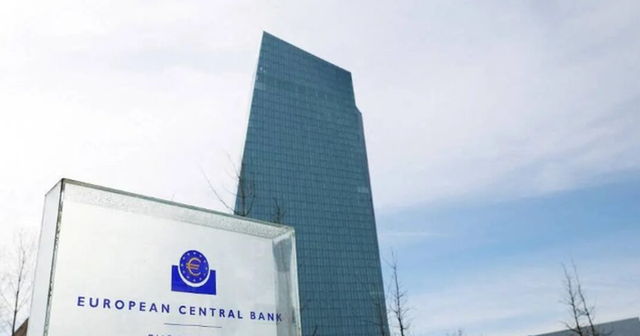
Growth and inflation are expected to slow as ECB bankers brace for the impact of tariffs. The European Central Bank cut its key interest rate by a quarter point to 2.25% as it braces for the economic fallout from the trade war sparked by US President Donald Trump.
Thursday's cut, which brings borrowing costs in the eurozone to their lowest level in more than two years, was widely expected after Trump announced sweeping tariffs on most US trading partners on April 2.
Ahead of the decision, the US president compared the ECB's record of rate cuts to the US Federal Reserve, which kept rates on hold at its last meeting in March. Trump said Fed Chairman Jay Powell, who warned on Wednesday about the impact of tariffs on US growth and inflation, was "always TOO LATE AND WRONG" and "his end will come pretty soon!"
The ECB's cut this week is the seventh since it began cutting the deposit rate last June. Traders expect at least two more quarterly cuts by the end of this year, according to levels implied by swap markets before the decision. The euro was little changed, at $1.136 immediately after the cut.
Trump made a partial U-turn last week, delaying 20% “reciprocal tariffs” on EU goods for 90 days, during which time a 10% rate will apply. But senior central bank officials say his protectionist policies are set to be a negative economic blow to the euro zone.
The ECB is already facing slower growth and lower price pressures. In March, the central bank cut its 2025 growth forecast for the eurozone to 0.9% – the sixth consecutive cut.
Inflation eased last month to 2.2 percent — just above the ECB’s 2 percent target — while services prices rose at their slowest pace in nearly three years. Economists say inflation could be further dampened by a drop in oil prices this month, the euro’s recent appreciation against the dollar and a possible surge in Chinese imports into the eurozone. All three developments are widely seen as consequences of Trump’s trade policy, at least in part.
But rising debt-financed spending in Germany and elsewhere in the Eurozone could push up inflation. / Monitor
Latest news


Morning Post/ In 2 lines: What mattered yesterday in Albania
2025-04-19 07:54:58
The SP's electoral crime scheme with the Fier administration is proven
2025-04-18 22:57:15
Fevziu: Veliaj's arrest gave the left a 'friend' on the eve of the campaign
2025-04-18 22:42:43

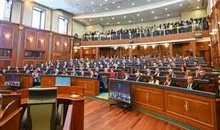
Swearing-in of MPs in Kosovo uncertain even on Saturday
2025-04-18 21:56:16
Find out what are the most aggressive zodiac signs who can't hold their nerve?
2025-04-18 21:32:47
Berisha: Rakip Veliaj has set up the same scheme as 5D
2025-04-18 21:12:04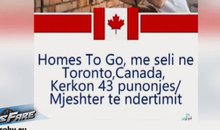
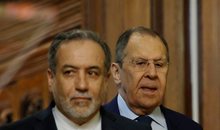
Iranian Foreign Minister seeks Russia's support in nuclear talks
2025-04-18 20:42:52






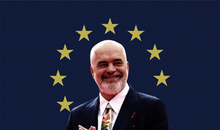
The speech that aims for the European passport, but not for drinking water
2025-04-18 18:58:15
33-year-old Albanian dies in Greek detention
2025-04-18 18:33:45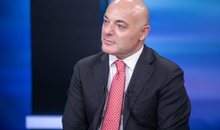

Zelensky accuses US envoy Witkoff of spreading Russian narratives
2025-04-18 18:08:33



Fight in Durrës cemetery, father and son injured
2025-04-18 16:58:31
Israeli strikes kill at least 17 people in Gaza
2025-04-18 16:29:04
A woman dies in an accident in Tapiza, the 33-year-old driver is in custody
2025-04-18 16:26:04


EU: It is essential for Kosovo to quickly form a new government
2025-04-18 15:53:40
Two Albanians sentenced to 18 years in prison for raping English woman
2025-04-18 15:44:34

How to prepare your skin for a perfect tan this summer?
2025-04-18 15:16:02
Dritan Rexhepi refuses to testify about the kidnapping of Jan Prenga
2025-04-18 14:59:18

Abuse of "SASPAC" funds/ GJKKO postpones hearing against Ilir Beqaj
2025-04-18 14:38:26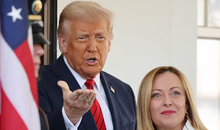
Meloni in Washington, Trump: We will have an agreement with the EU
2025-04-18 14:22:16





Piranha Investigation/We consumed milk with aflatoxin
2025-04-18 13:06:16
Letter to first-time voters!
2025-04-18 12:56:06


Berisha: A judge ordered SKAP to investigate Rama for the villa in Surrel
2025-04-18 12:20:51





BKH agents attacked, Fier court leaves Agron Kapllanaj's grandchildren in prison
2025-04-18 11:22:14
"Albania couldn't hold on", Lara Colturi chooses Italy for her career
2025-04-18 11:10:50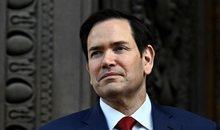
Rubio: We will withdraw from Russia-Ukraine peace deal if there is no progress
2025-04-18 10:58:18


Beyond the horizon, life goes on! Black Friday and Easter
2025-04-18 10:31:31

VIDEO/ Diaspora vote, Albanian shows the middle finger to the SP
2025-04-18 10:10:47
Ajola Xoxa appears before SPAK, implements the "compulsory appearance" measure
2025-04-18 09:58:34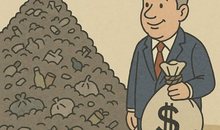
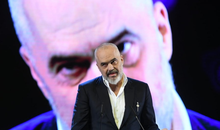
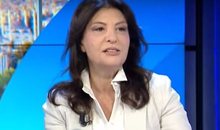



Foreign exchange, April 18, 2025
2025-04-18 08:58:05
Germany needs construction workers
2025-04-18 08:55:05


Horoscope, what do the stars have in store for you today?
2025-04-18 08:23:30
Temperatures reach up to 24 degrees, weather forecast
2025-04-18 08:08:21
Posta e mëngjesit/ Me 2 rreshta: Çfarë pati rëndësi dje në Shqipëri
2025-04-18 07:52:20

Assassination in Tirana, police react: 4 injured in Trauma, two of them minors
2025-04-17 22:34:30
Gunfire in Tirana, 4 people injured
2025-04-17 22:16:15

Tirana Incinerator, Lala: Officials were punished as if they stole a chicken
2025-04-17 21:50:29
Wealth Zodiac: Who has the money magnet?
2025-04-17 21:47:18





Assassinations in Lezha Plain, Roan Brahimi's father is killed
2025-04-17 20:29:59
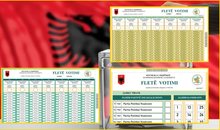
The first 600 ballots from the diaspora arrive in Albania
2025-04-17 19:52:59
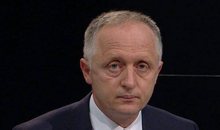
Farmers who make BÉ-eee and farmers of the EU!
2025-04-17 19:30:47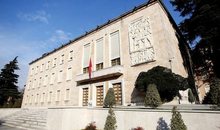

Tobacco: 0% tax for freelancers, PD with a clear plan for the middle class
2025-04-17 19:07:05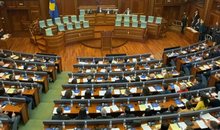

Car hits 9-year-old child in Pogradec
2025-04-17 18:42:15
Alizoti accuses SPAK: It has failed in supervising the elections
2025-04-17 18:31:42
Mental health alert: Work without limits, mind under pressure
2025-04-17 18:09:04
Two vehicles collide, 29-year-old dies in Tirana
2025-04-17 18:01:45
Rama from Dibra: Half of Albanian men are syrians, the rest vote for the DP!
2025-04-17 17:55:58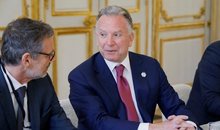
Top Ukrainian, European and American leaders meet in Paris
2025-04-17 17:45:35
